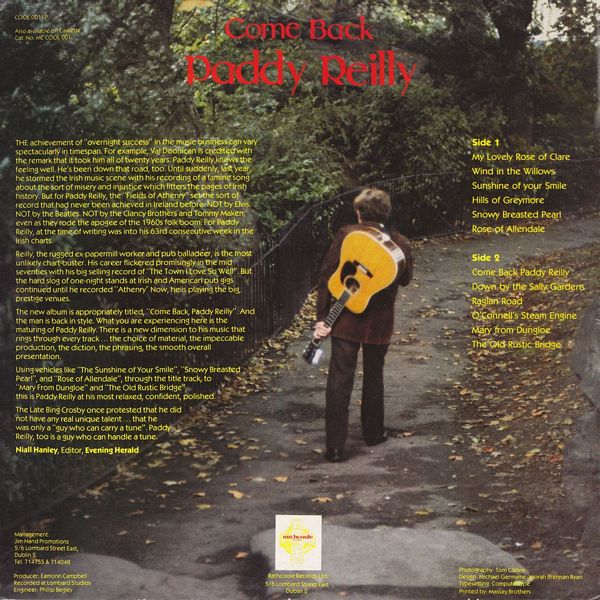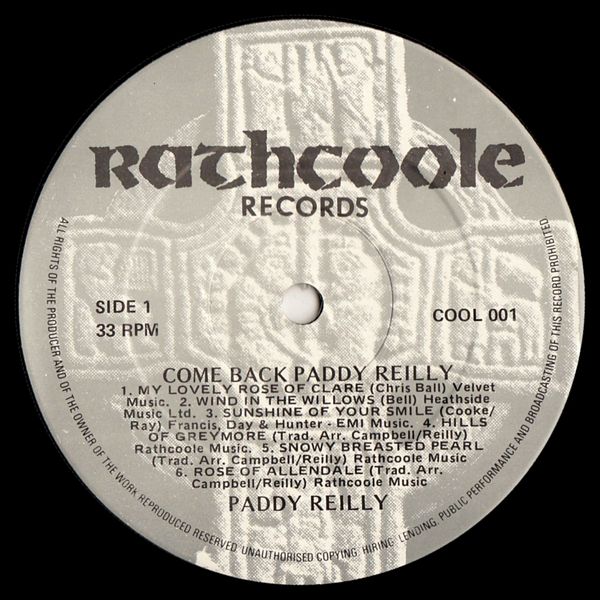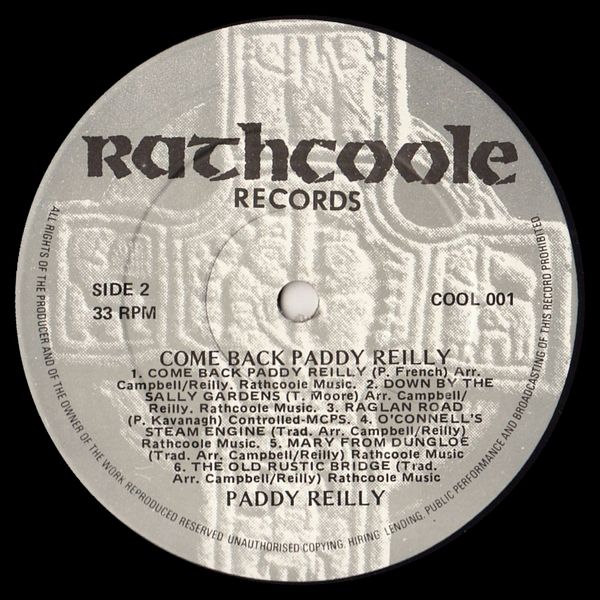

 |


 |
Sleeve Notes
THE achievement of "overnight success" in the music business can vary spectacularly in timespan. For example, Val Doonican is credited with the remark that it took him all of twenty years. Paddy Reilly knows the feeling well. He's been down that road, too. Until suddenly, last year, he stormed the Irish music scene with his recording of a famine song about the sort of misery and injustice which litters the pages of Irish history. But for Paddy Reilly, the "Fields of Athenry" set the sort of record that had never been achieved in Ireland before. NOT by Elvis, NOT by the Beatles. NOT by the Clancy Brothers and Tommy Makem, even as they rode the apogee of the 1960s folk boom. For Paddy Reilly, at the time of writing was into his 63rd consecutive week in the Irish charts.
Reilly, the rugged ex-papermill worker and pub balladeer, is the most unlikely chart-buster. His career flickered promisingly in the mid seventies with his big selling record of "The Town I Love So Well". But the hard slog of one-night stands at Irish and American pub gigs continued until he recorded "Athenry" Now, he is playing the big, prestige venues.
The new album is appropriately titled, "Come Back, Paddy Reilly". And the man is back in style. What you are experiencing here is the maturing of Paddy Reilly. There is a new dimension to his music that rings through every track … the choice of material, the impeccable production, the diction, the phrasing, the smooth overall presentation.
Using vehicles like "The Sunshine of Your Smile", "Snowy Breasted Pearl", and "Rose of Allendale", through the title track, to "Mary From Dungloe" and "The Old Rustic Bridge", this Paddy Reilly at his most relaxed, confident, polished.
The Late Bing Crosby once protested that he did not have any real unique talent … that he was only a "guy who can carry a tune". Paddy Reilly, too is a guy who can handle a tune.
Niall Hanley
Editor, Evening Herald